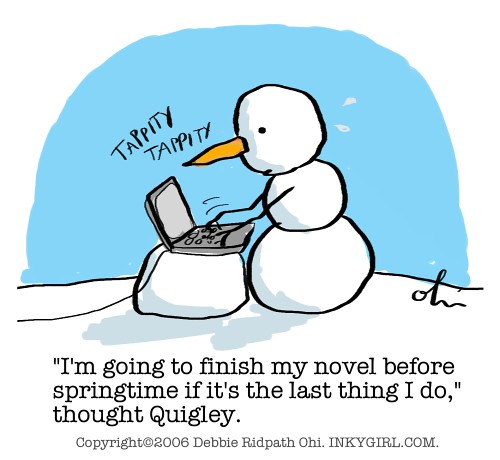
Hello Fellow Writers!
I have been busy working on a short story that I plan on submitting to Ellora's Cave for their "Alluring Arts" theme. The deadline is January 31st, which gives me plenty of time to write the 10K word story and have it critiqued by my writing group - although that will be a little weird, since Ellora's Cave publishes Romantica, aka romantic erotica.
So far I've written 6000 words of my story.
In any story, dialogue plays an important role. It can make or break your piece. Here is an excerpt from an article on DailyWritingTips.com. Read the whole article here.
Here are some things good dialogue should do:
- It should follow some simple grammatical rules. Dialogue should be enclosed within quotation marks. Each new line of dialogue is indented, and a new paragraph should be started every time a new person is speaking.
- It should be concise. Long, wordy passages of dialogue might seem like a good way to get information across, but they can be tedious for the reader.
- It should communicate character information. Good dialogue lets the reader know something about the person speaking it.
- It should be broken up with action. People don’t typically stop everything when they talk. They fidget. They keep washing the dishes. They pace. Don’t forget that your characters aren’t static.
- Don’t get too crazy with dialogue tags. Usually, a few well-placed “he saids” or “she replieds” will do the trick. If your dialogue is well-written, it should be clear who is speaking, even without the tags.
- Don’t go overboard with backstory. You should never use dialogue to tell the readers things your characters already know.
- Don’t use too much dialogue. Your readers don’t need to know everything your characters say, word-for-word. Dialogue should be chosen carefully.
- Don’t try to be too realistic. Our actual speech wouldn’t make great dialogue. We say “um” and “uh” a lot. We trail off in the middle of sentences. We change subjects without warning. Good dialogue should approximate real speech, not mimic it.
Wish me luck, and good luck to you too!
Yours Truly,
Shoshanna Evers
p.s. Remember this blog is transitioning from a daily blog to a weekly blog. Please use the search feature to find info on anything and everything having to do with writing, agents, and publishing!
No comments:
Post a Comment
Note: Only a member of this blog may post a comment.